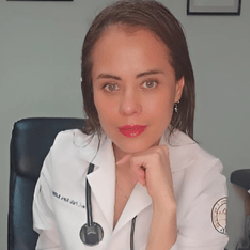
Paola del Rosario Flores Rodríguez
Lieue University, MexicoPresentation Title:
PONCE mt, a channeling test to improve neurodevelopmental disorders
Abstract
This article elaborates on the validation, consistency, and reliability of the PONCE mt test (Organic Neuroeducational Test for Specialized Channeling in Morphology and Disorders), which serves as a bridge between educators and the cognitive aspects through speech therapists and clinics via orthodontists, facilitating the inclusion process of children in the classroom.
The article presents findings on the test design and its validation for identifying school-aged children with neurodevelopmental disorders and language issues. The Organic Test was developed to canalize and intervene with specialists in language and orthodontics. PONCE mt focuses on concrete actions to ensure that principles of equity are effectively applied, seeking to recognize and address inequalities and barriers that may prevent some children from having the same opportunities as others.
Under the format of a Collective Work Report, reliability was determined, followed by validity assessment implemented in two stages, both evaluating relevance and wording using the Likert scale, finally, internal consistency was examined by comparing the neuroeducational component with the clinical component, divided into language and orthodontics.
The PONCE mt test was compared with the SISAT and the Questionnaire for Dental Specialists to ensure comprehensibility by all three specialists, enabling the educator to become a neuroeducator. The tool, along with usage manuals and evaluations, is provided for easy handling in classrooms.
As a result, it is concluded that the instrument is fully viable for daily use by teachers to identify and channel school-aged children with speech morphology conditions and neurodevelopmental disorders that hinder the teaching and learning process. If the neuroeducator uses the PONCE mt tool as a cognitive link to academic performance, they will evolve into a neuropsychoeducaror, the most innovative third generation of clinical-educational implementation.
Biography
Dr. Paola Flores-Rodriguez, 38, is a neurophysiologist specializing in cognitive rehabilitation with a focus on the treatment of neurodevelopmental disorders. She holds a PhD in Science with an emphasis on Neuroeducation and works as a professor in the Medical Surgeon program. She is an honorary member of the Mexican Council of Neurosciences and a national and international speaker. She has published several scientific articles focused on intervention and prognosis in the management of children and youth with neurodiversity, integrating the relevance of mental health for new generations into her clinical practice. Mexican Ministry of Education/Juárez University of the State of Durango, Mexico

